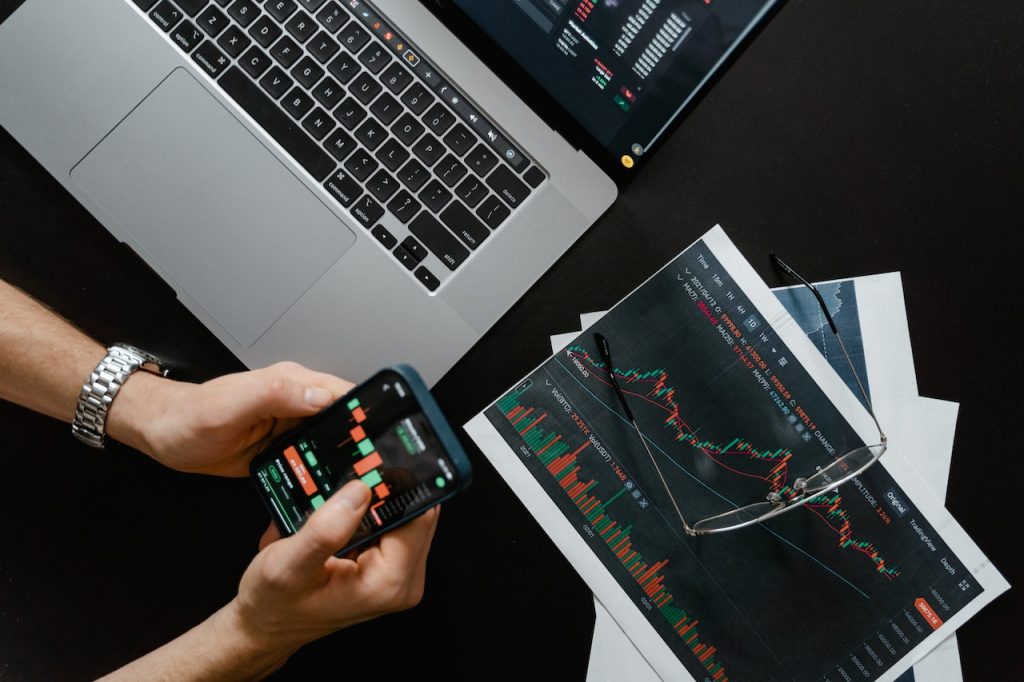
James Carter
How Profitable is Cryptocurrency Trading?

A digital or virtual currency that employs cryptography to make financial transactions private and secure is called a cryptocurrency. Cryptocurrencies are decentralized systems that keep track of transactions and make new units using blockchain technology. (Also Read: How Cryptocurrency Will Change the World?)
They work without a central bank, and you can buy and sell them on online exchanges or save them as investments. Cryptocurrencies are often called “alternative” or “virtual” currencies, and in recent years they have become more popular and accepted by the general public. Some well-known examples of cryptocurrencies include Bitcoin, Ethereum, and Litecoin.
What are the Most Popular Cryptocurrencies?
The popularity of cryptocurrencies can change over time, but as of 2021, some of the most popular cryptocurrencies include the following:
Bitcoin (BTC): Bitcoin is the first and most well-known cryptocurrency and has a long history of high volatility. It is also often used as a store of value and a hedge against inflation.
Ethereum (ETH) ranks second in terms of market capitalization among cryptocurrencies. It offers a platform for developing decentralized applications (dapps) and smart contracts, which makes it more valuable than Bitcoin.
Ripple (XRP): Ripple is a digital currency that facilitates fast and low-cost international money transfers. Many financial institutions have adopted it for this purpose.
Bitcoin Cash (BCH): is a Bitcoin fork that was intended to address scalability and transaction cost issues.
Litecoin (LTC): Litecoin is often called the “silver to Bitcoin’s gold” and is similar to Bitcoin in many ways but with faster confirmation times.
Tether (USDT) is a stablecoin tied to the value of the US dollar. It is often used to trade, protect against risk, and store value, especially when the market is going up and down.

What is Cryptocurrency Trading?
Cryptocurrency trading refers to the buying and selling of various digital or virtual currencies on online platforms, such as cryptocurrency exchanges. Cryptography is used by these currencies, like Bitcoin and Ethereum, to secure and verify transactions and track how many new currency units are made.
Traders can buy and sell cryptocurrencies at varying prices, depending on supply and demand. Like other financial markets, prices for cryptocurrencies can fluctuate considerably depending on market conditions, news, and announcements.
Depending on their trading strategies, traders can hold cryptocurrencies for a short, medium, or long period, or they can frequently trade, buying and selling based on price fluctuations.
Trading cryptocurrencies can be done through various methods. Some people prefer to buy and hold the currencies, while others prefer to trade them actively, trying to take advantage of short-term price movements. Some may also like to trade with leverage, which can increase the potential for profits and the risk of losses.
It is worth mentioning that cryptocurrency trading is still a relatively new field, and the regulatory landscape can vary depending on the country. Thus it requires careful research and understanding before starting trading.
How to Get Started With Trading Cryptocurrency?
Getting started with trading cryptocurrencies can seem daunting, but with the right approach and tools, it can be a relatively straightforward process. The following are the steps you can follow to get started:
Research: Before you start trading, you must thoroughly research the different cryptocurrencies available, their features, use cases, and volatility levels. This will help you determine which currencies match your investment target and how much risk you are willing to take. Also, learn about the different exchanges and brokers and look at their fees, reviews, and rules.
Choose an exchange: Once you’ve decided which currencies you want to trade, you’ll need to choose an exchange to buy and sell them on. Popular exchanges include Binance, Coinbase, and Kraken, but there are many others to choose from. When choosing an exchange, you should think about things like fees, security, and the coins that are available.
Set up an account: After selecting an exchange, you’ll need to set up an account by providing personal information and completing verification steps as required by the exchange and regulations. This might include providing your name, address, and ID and linking a bank account or credit card for funding.
Fund your account: When your account is set up, you’ll need to fund it by transferring money from
Risks of Cryptocurrency Trading?
Like any form of investment, cryptocurrency trading comes with a certain level of risk. Here are some of the main risks associated with trading cryptocurrencies:
Volatility: Cryptocurrency markets are known for their high levels of volatility, which can lead to significant price swings in a relatively short period. This volatility can create opportunities for traders to make large profits and expose them to substantial losses.
Lack of regulation: Cryptocurrency markets still need to be fully regulated, meaning traders have less oversight and protection. This can make it more challenging to navigate the market and protect against fraud and illegal activities.
Security risks: Cryptocurrency trading involves storing and transferring digital assets, which are stored in digital wallets. If these wallets are not correctly secured, they can be vulnerable to hacking and theft.
Counterparty risk: When trading on an exchange, traders trust that the exchange will be able to fulfill its side of the trade, for example, delivering the assets sold or buying the assets at the agreed-upon price. Exchanges have been hacked or bankrupted, and traders have lost their investments.
Liquidity Risk: Some cryptocurrency markets may not have sufficient trading volume, which can make it difficult to buy or sell assets at desired prices and can cause significant price spreads.
Legal risks: There is a risk that some governments will outlaw or restrict trading in cryptocurrencies, which can make it illegal to own or trade them.
Human Error: Mistakes such as sending funds to the wrong address, losing access to private keys, or falling for phishing scams can also lead to the loss of assets.
It’s important to remember that some of these risks can be reduced with proper research, risk management strategies, and staying up-to-date on the market, regulations, and the specific cryptocurrency being traded.
Diversifying a portfolio across different cryptocurrencies and exchanges is a good idea, and people should only invest money they can afford to lose. It’s also essential to keep your funds and private keys in a secure and safe place and stay informed about changes in the legal and regulatory environment. Furthermore, it’s essential to have a solid trading plan and risk management strategy in place to minimize the impact of potential losses and to increase the chances of profitability.
how Profitable is Cryptocurrency Trading?
Cryptocurrency trading can be highly profitable for those navigating the volatile and complex world of digital currencies. However, risks are involved with any investment, and many factors can influence profitability.
One of the main factors that can impact profitability is the specific cryptocurrency being traded. Some cryptocurrencies, such as Bitcoin and Ethereum, have a long history of high volatility, which can create opportunities for significant gains. Other cryptocurrencies, such as stablecoins, which are pegged to the value of a fiat currency, may be less volatile and therefore present less opportunity for large profits and lower risk.
Another critical factor is the current market conditions. Bull markets, characterized by rising prices, tend to be more conducive to profitability for traders. These markets can offer opportunities for traders to buy low and sell high. In contrast, bear markets, characterized by falling prices, can be more challenging for traders, as it becomes difficult to profit when prices are consistently decreasing.
A trader’s investment strategy and risk tolerance also play a significant role in determining profitability. Some traders prefer a conservative approach, focusing on steady, long-term gains. In contrast, others may prefer a more aggressive approach, trying to capitalize on short-term price movements.
It’s also worth noting that cryptocurrency trading is not without risk, and it is essential to be prepared to experience both profits and losses as part of the process. So, traders can’t be sure they’ll make money, and to increase their chances, they need to do a lot of research, have a good trading plan, and know how to handle risks.
Traders may also use leverage to increase their profits, which makes it more likely that they will lose a lot of money. Therefore, using leverage must be done with caution and in line with the trader’s risk tolerance.
Lastly, it’s essential to consider the costs of trading, such as taxes and trading fees, which can cut into overall profits. Traders should factor in these costs when evaluating the potential profitability of a trade.
In conclusion, trading cryptocurrencies can be very profitable for people who can handle digital currencies’ volatile and complicated world. But it is important to remember that various factors, including market conditions, investment strategy, and risk tolerance, can influence that profitability. Before getting into the market, it’s essential to do research, develop a good trading plan and risk management strategies, and know what trading costs are. (Also Read: 5 Must-Follow BTC Stocktwits)
Latest
Blockchain
06 Feb 2026
Blockchain
05 Feb 2026
Blockchain
03 Feb 2026
Blockchain
20 Jun 2024
Blockchain
09 May 2024
Blockchain
19 Apr 2024













